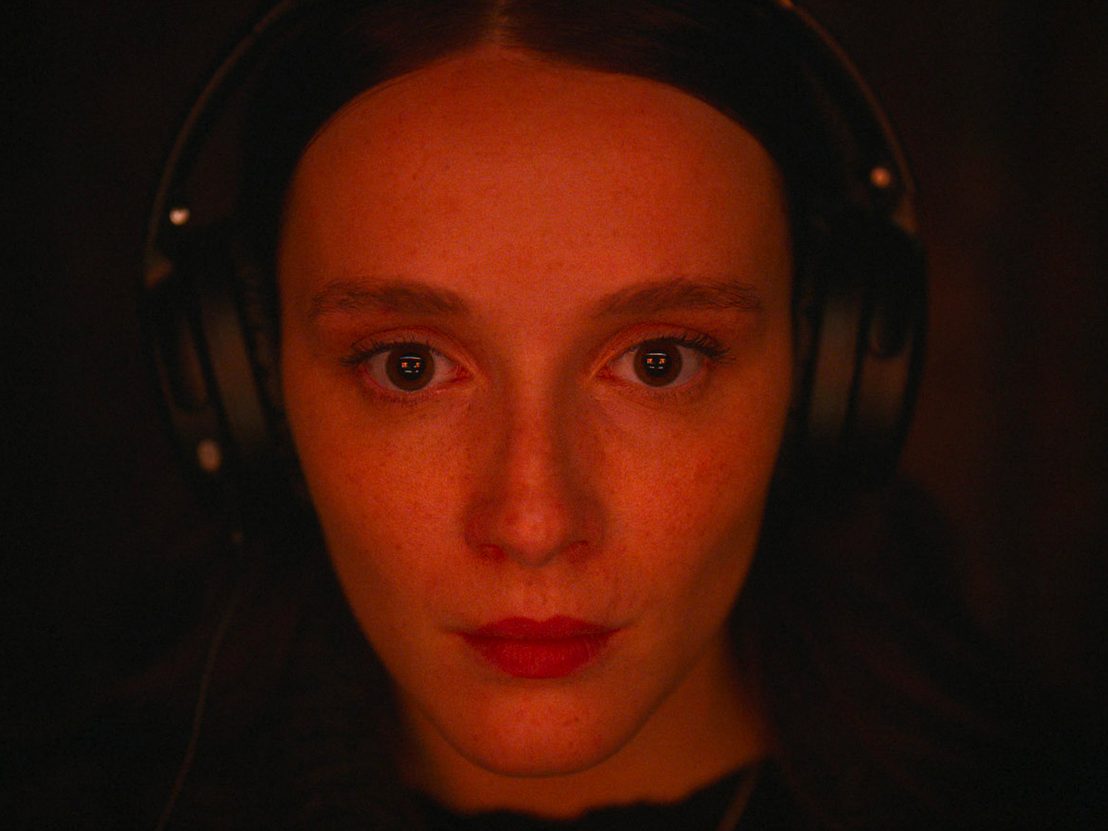
Pascal Plante presents a piercing take on true crime in this austere, affecting psychological thriller.
Red Rooms, for the uninitiated, are the stuff of internet legend. Rumoured to exist on the ‘dark web’ – only accessible through a special browser – these video portals connect paying voyeurs with criminals who provide videos, usually live, of assault, torture, or in extreme cases murder. While the existence of these ‘rooms’ is highly disputed, it’s no secret that the internet has long been a place for people to share the most depraved content imaginable, whether it’s out in the open on social media, or via intricate private networks that government agencies spent years trying to crack. It’s easy to understand why the concept of pay-per-view torture might capture the imagination of filmmakers, but in Pascal Plante’s psychological thriller, sensationalism thankfully takes a back seat.
As the trial begins for Ludovic Chevalier (Maxwell McCabe-Lokos), accused of kidnapping, torturing and murdering three teenage girls and broadcasting his crimes to an online audience, lawyers, police officers and members of the press file into the Montreal courtroom. But someone who is none of the above is there too: Kelly-Anne (Juliette Gariépy) is a civilian spectator, who dutifully turns up to every day of the proceedings. She sits in the back and listens attentively as the prosecution and defence deliver their cases. Every day she goes home to her apartment – a sleek glass box with a nifty tech set-up – where she plays online poker to supplement her modelling income. The internet, it seems, is her primary hobby, and she’s taken a special interest in Chevalier’s case, although her motivations for doing so are unclear.
While Kelly-Anne is happy to fly under the radar, this becomes difficult when Clémentine (Laurie Babin), a naive murder groupie who swears Chevalier is innocent, takes a shine to her. Kelly-Anne’s feelings towards the accused are more difficult to decipher – perhaps even to herself. As the trial goes on, it begins to take a toll on her, eventually disrupting her job and unnerving her colleagues. Perhaps her obsession is a form of self-sabotage, or she relates more to Chevalier than she’s letting on. At any rate, we witness Kelly-Anne utilise her tech-savviness to unearth private details about the victims’ families, and even to view the videos which depict the murders. Throughout much of this, she appears glassy-eyed, and almost impassive.
Plante’s film avoids sensationalism for the most part by only showing the aftermath of the murders, along with a few harrowing snippets of audio – although it’s a film about a serial killer, Plante is much more interested in how the consumption of true crime by spectators might change their psyche, and the ethics of becoming too involved in such cases. In one chilling scene, Kelly-Anne casually hacks into the emails of one of the victim’s mothers, and then logs off to do a quick aerobics session, totally unfazed by her own sociopathy.
Blending courtroom drama and claustrophobic tech-tinged nightmare, Red Rooms is a striking and austere examination of the true-crime industrial complex that benefits from its formality and disturbingly removed protagonist. Although in the end there’s a sense Kelly-Anne might have acted for the right reasons, one can’t help but wonder if she’s lost some of her humanity along the way.
Published 6 Jul 2023